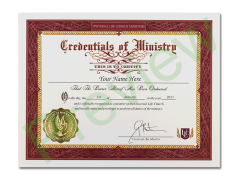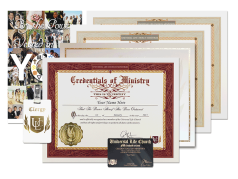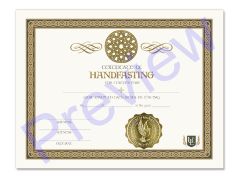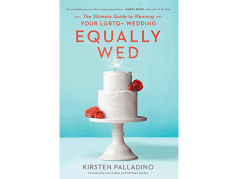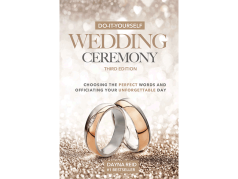How to Make Sure a Wedding Is Legal
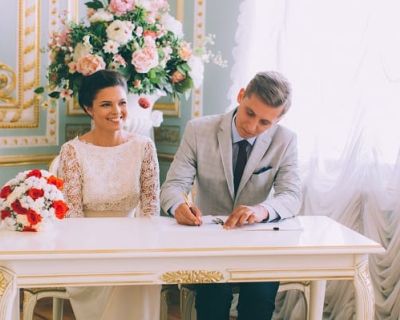
When asked to officiate a wedding, your chief concern will not be what to include in the script, what to wear for the big day, or how much to charge for your services. Although those are all important questions, they pale in comparison to making sure the ceremony you perform is legal.
ULC ordinations hold equal weight to those of any other religious organization. However, all ministers must still follow established legal protocols in order for the marriage to be formally recognized in the eyes of the government. As the wedding officiant, it’s your job to figure out exactly what’s required of you and how to guarantee a legal ceremony takes place.
Here are a few steps all officiants should follow before performing a wedding:
1. Get Ordained
The first step is to become ordained here on our website. Simply fill out a formal ordination request with your personal details and press submit – it’s as easy as that! After applying, keep an eye on your inbox, as you’ll receive a confirmation email from us. Once that comes through, you’ll be officially ordained!
2. Consult Marriage Laws
Your next step will be to research the marriage laws in the state where the wedding will be held. Since these laws vary significantly from place to place, it’s important to understand the requirements for individual states and counties. Using our helpful Marriage Laws Map, select your state to learn if anything will be required of you prior to the ceremony.
Some areas may require ministers to submit additional paperwork or formally register in order to start officiating weddings. In that scenario, you will likely be asked to present ministerial documents issued by the ULC so government officials can verify you are indeed a member.
3. Acquire Official Documents
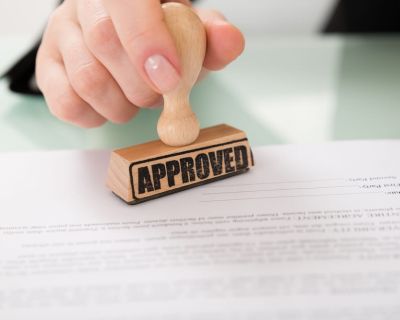
The most frequently requested document is the Ordination Certificate, which comes included in the Classic Wedding Kit. In the event that officials require additional proof of ordination, we typically advise adding a Letter of Good Standing to the package. These items can be found in the ULC Minister Store section of our website – along with loads of other materials such as marriage certificates, ceremony how-to books, and officiant apparel.
Even in states where officiant registration is not technically required, ULC officiants in those areas have told us that having official documents does often come in handy. The fact is, online ordination remains a peculiar concept in the minds of some. Despite being completely legal, it’s not uncommon to encounter skepticism. Whether it be a county clerk, a family member of the couple, or even the couple themselves, having physical documentation is the best way to put minds at ease and show you’re serious about the important role you’re taking on.
4. Review the Wedding Script
With all that preparation out of the way, it’s time for the fun part: performing the ceremony! Beneath all the pomp and tradition, a wedding ceremony really only requires two essential elements to be considered legal. First is the Declaration of Intent (known more commonly as the "Do you take…" and "I do" exchange). Second is the Pronouncement, in which the officiant formally declares the couple to be married. Although most ceremonies will involve many more steps, make sure to review your wedding script and double check those parts are included.
5. Know the Rules for Marriage Licenses
This step is extremely important, for the marriage won’t be official until the marriage license is correctly filled out and turned in. Since rules regarding marriage licenses differ from state to state, it’s necessary to understand the specific guidelines for your area. For example, some states institute a mandatory waiting period after the marriage license is issued before a ceremony can take place. Knowing the ins and outs of such rules is critical.
Since the day of the wedding can be hectic for everyone involved, be sure to set aside time shortly after the ceremony to meet with the couple and fill out the marriage license with them. If you’re unfamiliar with this process, please review our guide on how to complete a marriage license .
Note: if the couple has any pressing legal questions, we advise that you refer them to an attorney. It may also be prudent for a wedding officiant to retain an attorney themselves.
Creating a Legal Union
As a marriage officiant, of course you’ll be focused on constructing a memorable ceremony for the couple and their loved ones. Just keep in mind that your primary responsibility is to make sure all the legal boxes have been checked. Otherwise, all that hard work preparing for the ceremony will be for naught.
Thankfully, this process is quite straightforward. As long as you follow the steps detailed above, you can rest assured the wedding will be legal.
